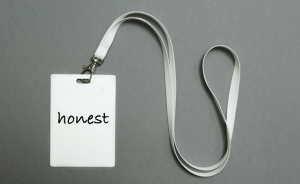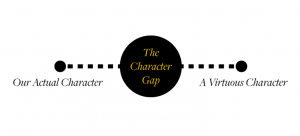Christian B. Miller in Nautilus:
 Here is the predicament that most of us seem to be in. We are not virtuous people. We simply do not have characters that are good enough to qualify as honest, compassionate, wise, courageous, and the like. We are not vicious people either—dishonest, callous, foolish, cowardly, and so forth. Rather we have a mixed character with some good sides and some bad sides. This is the most plausible interpretation of what psychology tells us. It is also true to our lived experience in the world. Those are the facts as I see them. Now comes the value judgment—this is a real shame. It is very unfortunate that our characters are this way. It is a good thing—indeed, a very good thing—to be a good person. Excellence of character, or being virtuous, is what we should all strive for. Admittedly, the news is not all bad. It would be a lot worse if most of us were vicious people. Imagine what it would be like to live in a world full of mostly cruel, self-centered, dishonest, and hateful people. It would be hell on earth.
Here is the predicament that most of us seem to be in. We are not virtuous people. We simply do not have characters that are good enough to qualify as honest, compassionate, wise, courageous, and the like. We are not vicious people either—dishonest, callous, foolish, cowardly, and so forth. Rather we have a mixed character with some good sides and some bad sides. This is the most plausible interpretation of what psychology tells us. It is also true to our lived experience in the world. Those are the facts as I see them. Now comes the value judgment—this is a real shame. It is very unfortunate that our characters are this way. It is a good thing—indeed, a very good thing—to be a good person. Excellence of character, or being virtuous, is what we should all strive for. Admittedly, the news is not all bad. It would be a lot worse if most of us were vicious people. Imagine what it would be like to live in a world full of mostly cruel, self-centered, dishonest, and hateful people. It would be hell on earth.
Nevertheless, at this point we are confronted with a significant gap.
 What strategies are there to try to develop a better character, and which of these strategies show substantial promise? In my book The Character Gap: How Good Are We?, I consider a number of different strategies. One I find quite interesting is what we might call “virtue labeling.” Suppose you come to believe, as I do, that most of the people we know do not have any of the virtues. So your friend, your boss, your neighbor … you need to change your opinion of all of them. Now here is the interesting idea—even with this new outlook firmly in mind, you should still go ahead and call them honest people next time you see them. You should still praise them for being compassionate. You should go out of your way to comment on their courage.
What strategies are there to try to develop a better character, and which of these strategies show substantial promise? In my book The Character Gap: How Good Are We?, I consider a number of different strategies. One I find quite interesting is what we might call “virtue labeling.” Suppose you come to believe, as I do, that most of the people we know do not have any of the virtues. So your friend, your boss, your neighbor … you need to change your opinion of all of them. Now here is the interesting idea—even with this new outlook firmly in mind, you should still go ahead and call them honest people next time you see them. You should still praise them for being compassionate. You should go out of your way to comment on their courage.
Why would you do such a thing? Isn’t that just wrong?
More here.
